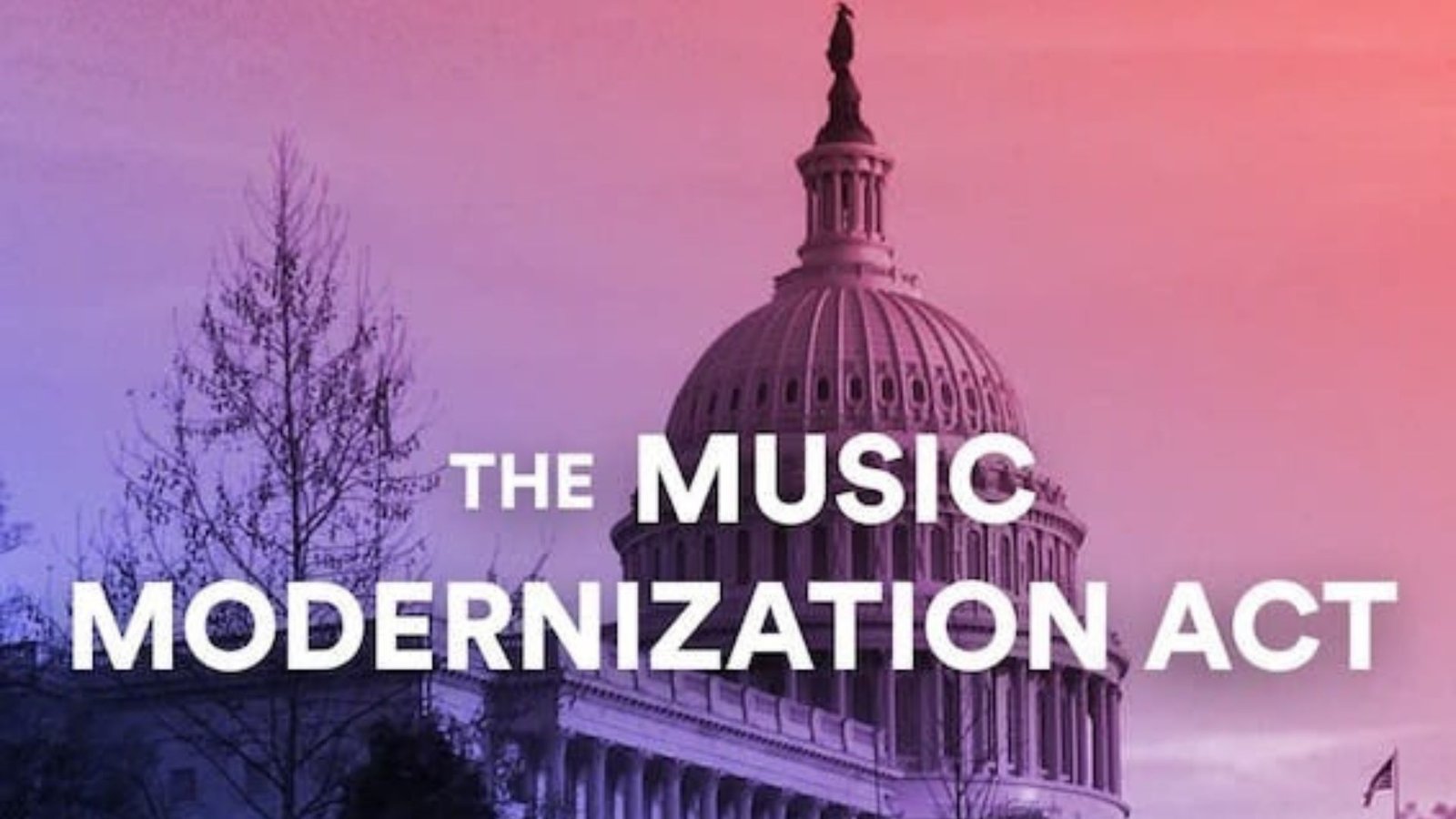|
Getting your Trinity Audio player ready...
|

Understanding Music Modernization Act
The Music Modernization Act aims to update copyright law for the digital age. The world of music is constantly evolving, and so are the laws and regulations surrounding it. In 2018, the United States enacted the Music Modernization Act (MMA), a landmark piece of legislation aiming to modernize copyright law for the digital age. This blog post aims to demystify the MMA. Furthermore, it explains its key components and their impact on various stakeholders in the music industry.
The Need for Modernization
Before the MMA, the music industry faced challenges in adapting to the rapid rise of digital music streaming services. Traditional copyright laws, designed for physical media like CDs and records, weren’t equipped to handle the complexities of online music consumption. This led to uncertainties regarding licensing, royalty payments, and fair compensation for music creators, including songwriters, artists, and producers.
What the MMA Does
The MMA addresses several key aspects of music copyright in the digital age:
-
Mechanical Licensing Collective (MLC)
This central entity streamlines the process of obtaining mechanical licenses for streaming music. Previously, songwriters and publishers needed to negotiate individual licenses with each streaming service, which was a time-consuming and complex process. The MLC simplifies this by creating a single licensing point, allowing songwriters and publishers to register their works and receive royalties efficiently.
-
Blanket Licenses for Interactive Streaming Services
This provision establishes a blanket license for interactive streaming services like Spotify, Apple Music, and Amazon Music. This means that streaming services can pay a single royalty fee to cover all the songs in their library, instead of negotiating individual licenses with each rights holder.
-
Digital Performance Royalties
The MMA clarifies how digital performance royalties are distributed for sound recordings used in streaming services. These royalties go to artists, performers, and sound recording copyright holders.
-
Pre-1972 Sound Recordings
The MMA provides federal copyright protection for sound recordings made before February 15, 1972, which previously lacked federal protection in the United States.
-
Allocation for Music Producers (AMP) Act
This provision, included in the MMA, allows producers to negotiate royalties from satellite and online radio broadcasts of recordings they worked on, empowering them to secure fair compensation beyond the initial recording session fee.
Who Benefits from the MMA?
-
Songwriters and Publishers
The MLC simplifies licensing and ensures they receive royalties from streaming services more efficiently.
-
Artists and Performers
The MMA clarifies and potentially increases its share of digital performance royalties.
-
Music Consumers
The MMA aims to create a more efficient and transparent system for music licensing, potentially leading to a wider variety of music available through streaming services.
-
Sound Recording Copyright Holders
Artists, labels, and studios benefit from expanded protection and clearer royalty distribution for recordings, particularly pre-1972 recordings.
Challenges and Considerations
While the MMA has been a positive step towards modernizing music copyright, some challenges remain:
-
International Harmonization
The MMA primarily focuses on the US market. Achieving international harmonization of music copyright laws remains crucial for ensuring fair compensation for creators across the globe.
-
Transparency and Accountability
Ensuring transparency in royalty distribution and holding all stakeholders accountable for fair treatment is essential for the long-term success of the MMA.
-
Data Accuracy and Efficiency
Streamlining the MLC’s operations and ensuring accurate data collection is crucial for proper royalty distribution and avoiding disputes.
Understanding the Impact
The Music Modernization Act is a complex piece of legislation with far-reaching implications for the music industry. By understanding its key provisions and potential impact, creators, consumers, and industry professionals can work together to ensure it fosters a fair and sustainable future for music. As the music industry continues to evolve, ongoing dialogue and collaboration will be crucial to ensure that the MMA serves its intended purpose and benefits all stakeholders. Learn more about the Music Modernisation Act on tuneCORE
